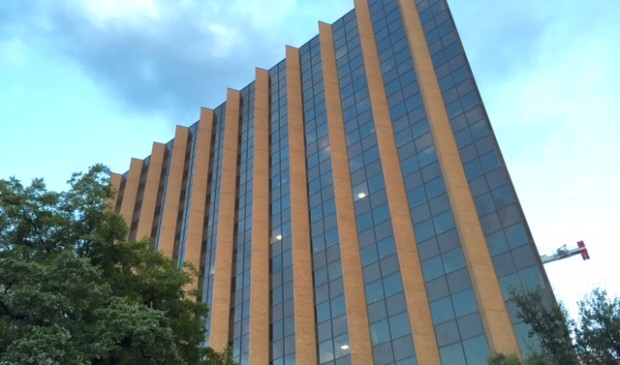Central Health discussion once again dominates Commissioners Court meeting
Thursday, August 24, 2017 by
Caleb Pritchard Central Health’s annual budget presentation to the Travis County Commissioners Court on Tuesday brought with it a fresh round of familiar complaints from activists about the level of transparency displayed by the hospital district.
Freshly installed President and CEO Mike Geeslin kicked off what later became a drawn-out discussion by obliquely acknowledging the critics who claim that Central Health has strayed from its obligation to provide health care for the county’s uninsured.
“This budget is about people,” Geeslin asserted. “And today, you’re going to be presented with a lot of financial numbers, statistics and system measures. But at the end of the day, behind each one of those numbers is a person sitting in a clinic waiting for services or waiting at a bus stop to get to a clinic.”
Central Health Chief Financial Officer Jeff Knodel delivered the meat of the budget presentation, which detailed the $252 million in revenues and expenses the district is projecting. That represents a $12 million increase over the previous year’s budget.
The tax rate would go down, but the average homeowner’s bill will be higher due to increasing property values. If approved by the Commissioners Court, the new rate would be 10.7 cents per $100 of taxable valuation. The owner of a home with the projected average value can expect to pay $327.71 next year to support Central Health, which is $12.50 higher than the prior year.
Knodel noted that Central Health’s share made up only 4.4 percent of county taxpayers’ bills in Fiscal Year 2016-17. That compares favorably to other Texas hospital districts, particularly Dallas’ Parkland Health & Hospital System, which occupied 10.6 percent of local tax bills in that county.
The FY 2017-18 budget once again includes a $35 million earmark for the University of Texas’ Dell Medical School, the source in recent years of activist agita. Most prominent of the group are attorneys Fred Lewis and Bob Ozer, both in attendance at Tuesday’s meeting, who have repeatedly argued that the earmark violates Central Health’s statutory obligation to work specifically for the health care of Travis County’s uninsured and indigent residents.
During public testimony, both men expressed frustrations about an ongoing performance review of Central Health initiated by the court. The scope of the review defied their expectations by including the district’s nonprofit spin-offs save one: Sendero Health Plans, an HMO that provides Medicaid and Children’s Health Insurance Program coverage.
Knodel explained that the district decided to let Sendero off the hook for now because a state agency had recently embarked on an audit of similar agencies across Texas.
But, he added, “I don’t have any objections to adding Sendero as an additional phase” of the Central Health performance review.
Even though the item before the court was merely a budget briefing from Central Health, representatives from Dell Medical School also testified.
Mini Kahlon, vice dean of strategy and partnerships, defended the affiliation agreement between the two entities that funnels the $35 million annual payment to the school. Critics have argued that because that money has so far mostly gone to the nascent medical school’s staff salaries, it violates Central Health’s mission of health care coverage. The school has countered that it is putting together a faculty that will create a new paradigm of public health in Travis County.
“The more interesting questions are around what does that really mean in terms of impacting people’s lives, and we are very interested in that goal because we’ve come here not to launch some boring little medical school, but to use that as a vehicle for community change,” Kahlon said.
Indeed, on Tuesday morning, the school announced the success of a new pilot clinic it launched alongside Central Health and Seton Healthcare Family, a triad known as the Community Care Collaborative. According to the press release, the clinic has reduced wait times by more than four weeks for women with pelvic-floor disorders.
Despite the apparently productive outcomes of the partnership between the school and the hospital district, several commissioners pushed for more transparency. Commissioner Brigid Shea suggested Central Health meetings be broadcast live on the county-owned television channel, TCTV, while commissioners Margaret Gómez and Jeff Travillion urged for more outreach to build trust among the community.
For his part, Commissioner Gerald Daugherty channeled frustrations in the room, declaring that he was ready to move on entirely from the recurring discussion. “I have sat through two or three years of this stuff and I have, quite frankly, had it up to here with it,” he said.
The court will hold a public hearing on Central Health’s proposed tax rate at a meeting next month before taking a final vote on it at a subsequent meeting.
The Austin Monitor’s work is made possible by donations from the community. Though our reporting covers donors from time to time, we are careful to keep business and editorial efforts separate while maintaining transparency. A complete list of donors is available here, and our code of ethics is explained here.
You're a community leader
And we’re honored you look to us for serious, in-depth news. You know a strong community needs local and dedicated watchdog reporting. We’re here for you and that won’t change. Now will you take the powerful next step and support our nonprofit news organization?






